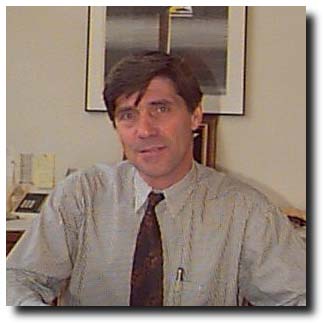
Paul Ducheyne is Professor of Bioengineering and
Professor of Orthopaedic Surgery Research at the University of Pennsylvania,
Philadelphia, PA, USA. He has been Director of its Center for Bioactive
Materials and Tissue Engineering and was a Special Guest Professor at K.U.
Leuven, Belgium. Paul Ducheyne is Founder, President-designate and Chairman of
the Board of Directors of XeroThera, a spin-out from the University of
Pennsylvania, developing advanced controlled delivery concepts for prophylaxis
and treatment of surgical infections, including resistant infections. Paul Ducheyne has more than
30 years of scientific, technical, entrepreneurial and governance experience in
the biomaterials, medical device, tissue engineering and controlled release
fields, especially as it concerns orthopaedics, but also as it relates to
cardiology, dentistry and medicine.
Paul Ducheyne graduated from the KU Leuven, Belgium,
in Materials Science and Engineering (M.Sc.: 1972; Ph.D.: 1976). With fellowships from the National Institutes of
Health (International Postdoctoral Fellowship) and the Belgian American
Educational Foundation (Honorary Fellowship), he performed postdoctoral
research at the University of Florida and formulated the concept of stimulating
bone tissue ingrowth into porous coatings on joint replacement prostheses by
using a thin film of hydroxyapatite. This concept is now standard throughout
the industry and the world.
Over a diverse research career, he has organized a number of significant
symposia and meetings, including the Fourth European Conference on Biomaterials
(1983), the Engineering Foundation Conference on Bioceramics (1986) and the 6th
International Symposium on Ceramics in Medicine (1993). The 1986 meeting led directly
to the New York Academy of Sciences publications Bioceramics, material characteristics versus in vivo behavior (1988).
He has lectured around the world and currently serves, or has served on, the
editorial board of more than ten scientific journals in the biomaterials, bioceramics,
bioengineering, tissue engineering, orthopaedics and dental fields. He was a
member of the editorial board, and then an Associate Editor, of Biomaterials (Elsevier), the leading
biomaterials journal, since its inception in the late 1970s. His papers have been cited more than 11,000 times with
an “h-factor” of 61; his ten most visible papers have been cited close to 3,000
times. He has
edited 16 books and book volumes and is
Editor-in-Chief of Comprehensive Biomaterials, a 6-volume, 3,650-page major
reference work published by Elsevier in August 2011. The second edition is slated
for publication in 2017.
Ducheyne started his career
in Europe. While at the KU Leuven,
Belgium (1977
– 1983), he was one of the co-founders of
the Post-Graduate Curriculum in Bioengineering. This program is now a full
M.Sc. program in the School of Engineering and Applied Sciences. In those initial years, he
was also chairman-founder of the chapter on Biomedical Engineering of the
Belgian Engineering Society (Flemish section) and director of Meditek, the
Flemish Government body created to promote Academia to Industry Technology
Transfer in the area of Biomedical Engineering. In 2007, the KU Leuven
appointed him as a Special Guest
Professor (2007 - 2010).
After joining the University of Pennsylvania in 1983,
he became one of the leading voices explaining the mechanisms whereby
calcium-phosphate based ceramics and glasses enhance and stimulate bone tissue
formation. This work led to many papers, product formulations and, in 1992, the
founding of the company Orthovita. This company was the first osteobiologics
company to become publicly listed. Orthovita
was the leading, independent biomaterials company in the world with more than
250 employees at the time of its acquisition by Stryker in June 2011. He also
founded Gentis, Inc., which focuses on breakthrough concepts for spinal
disorders.
Paul Ducheyne has been a
leader in helping to clarify the validity of important patents in the field. At
various times, he testified in federal court proceedings in cases that set the
tone for subsequent development with respect to novel concepts, such as porous
coatings (late 80s), tissue engineering methods (2004), and spinal disc
replacement and spinal fusion devices (2008-2013). In addition, he has also
rendered opinions regarding device functioning, mostly of orthopaedic devices
and of general surgery devices for the treatment of stress urinary
incontinence, pelvic organ prolapse and hernia repair.
Many of Ducheyne’s PhD students and postdoctoral
fellows have become leaders of the next generation. Among his students are Professors
at the University of California at Berkeley, the University of Michigan,
Columbia University, Georgia Institute of Technology, Kyushu University and
K.U. Leuven. Among seven U.S. Associate Editors of the Journal for Biomedical
Materials Research (Wiley and Society for Biomaterials), three were his PhD
students.
Paul Ducheyne has been Secretary
of the European Society for Biomaterials, is Past President of the Society for
Biomaterials (USA) and Past President of the International Society for Ceramics
in Medicine. He has been recognized as a
fellow of the American Association for the Advancement of Science (AAAS), fellow
of the American Institute of Medical and Biological Engineering (AIMBE), and
fellow of the International Association of Biomaterials Societies. He was the
first Nanyang Visiting Professor at the Nanyang Institute of Technology,
Singapore, and is a Honorary Professor at Sichuan University, Chengdu, China. He
has received the C. William Hall Award from the Society for Biomaterials
(2008). He also is the recipient of the Founders Award from the Society for
Biomaterials (2015) for his “long-term, landmark contributions to the discipline
of biomaterials”, and has been awarded the Inaugural Bioceramics Pioneer Award,
by the International Society for Ceramics in Medicine (2016) for “outstanding
lifetime achievements”.